#EuropeanUnion
Facing Emission Fines, Ford Becomes Ravenous for Carbon Credits
Ford is joining the lengthening list of automakers that cannot adhere to European emissions mandates this year and is pursuing the popular option of simply buying carbon credits from rivals who managed to sell more than a few electrified vehicles.
Under the EU rules, manufacturers can “earn” carbon credits by selling more EVs. But legacy automakers were hamstrung all year by the pandemic and Ford is on the hook for a recall of its Kuga (Escape) PHEV. The Blue Oval recalled almost 21,000 examples of the plug-in hybrid in August, asking owners not to drive the crossover in its electric-only mode and to avoid charging the battery. While alarming in its own right, Ford said the recall effectively makes it impossible for it to meet 2020 EU emission quotas. It is now seeking partners for an “open emissions pool” and is hardly the only manufacturer doing this.
EU Bans Rolls-Royce's Illuminated Spirit of Ecstasy for 'Light Pollution'
Those of you familiar with vintage motorcars will recall that there was once a period in history where hood ornaments weren’t the classy exception but the rule. Automakers have been affixing their corporate iconography to the top of vehicles since before there were seat belts, tapping members of the animal kingdom, indigenous leaders who opposed the British (back when such things were acceptable), winged letters of the alphabet, rocket ships, and just about everything else one could imagine wanting to stick atop an automobile. But most of those have been modified to suit the times and/or relocated onto the grille in an effort to avoid impaling pedestrians (Ed. note: And perhaps theft. I think my grandparents had the hood ornament stolen off their mid-’90s era Buick once. — TH).
While a few companies attempted to get around government safety regulations by implementing flexibly mounted hood ornaments designed to avoid stabbing the person you’ve already done the disservice of hitting with your car, just about all of them have given up the ghost by 2020. The only notable exception is Rolls-Royce, which has spent a fortune designing a spring-loaded device that snaps its famous Spirit of Ecstasy (aka the Flying Lady) down inside the engine bay whenever a moderate amount of force is applied.
The company has since decided to update its ornament to allow drivers to retract it on demand. It has also started offering a £3,500 option that makes Spirit of Ecstasy an illuminated crystal bauble that has suddenly run afoul of the European Union’s new light pollution regulations. Rolls-Royce will need to remove it from its brochures and customers will be forced to neuter their vehicles if they want to be compliant with the law.
European Union Empowered to Recall Vehicles Over Emission Violations
Updated rules have granted the European Commission the ability to not only check cars for emissions compliance, but also issue recalls for those found in violation.
Previously, recalls were required to be issued by the EU member nations that initially certified the vehicles. But the European Commission claims this tactic has allowed automakers to easily circumvent regulatory mandates, making large-scale recalls slower to progress for almost a decade. Following Volkswagen’s diesel emissions scandal in 2015, the EU ramped up efforts to consolidate regulatory powers after the United States was the one that initially busted the German automaker for cheating during pollution tests.
The European Commission will now be able to enact recalls on its own authority and fine automakers up to 30,000 euros ($35,725 USD) per vehicle. Those in broad opposition of giving Brussels additional authority have criticized the changes, while those supportive of the EU claim it will be able to deliver environmental justice more swiftly than individual nations.
Ghosts Of Dieselgate: VW Loses Important Case in Germany
Volkswagen’s emission-related malfeasance was promptly identified and dealt with in the United States. The company was accused of using suspect software to game testing scores on diesel-equipped models in 2015. By October of 2016, VW was on the hook for a $15.6 billion financial penalty, in addition to mandatory fixes or buybacks on affected vehicles.
Things progressed differently on the European front. Germany has subjected the manufacturer to numerous investigations, ultimately deciding to fine the firm $1.18 billion in 2018 and enact widespread recalls. Civil suits have largely focused on VW’s legal representatives denying the software had any ill intent, claiming it was simply code that mistakenly allowed the cars to become non-compliant with regulatory limits. This didn’t fly, however, with a gigantic UK lawsuit finding the automaker guilty of intentionally misleading customers in April.
This week, VW lost another important legal battle in Germany when the Bundesgerichtshof found it guilty of cheating on emissions testing years earlier. The Federal Court of Justice in Karlsruhe decided disenfranchised diesel van owner Herbert Gilbert was entitled to a €28,000 payday, setting a precedent for thousands of other claimants seeking revenge.
EU Considers $22 Billion Electric Vehicle Stimulus, U.S. Mulls Cash-for-clunkers Redux
The European Commission is reportedly preparing an economic stimulus package aimed at helping the EU bounce back from economic hardships caused by the coronavirus lockdown — saving some room for incentivized electric vehicle sales.
As you may have noticed in your home country, stimulus package proposals often involve lawmakers attempting to slip something in to aid their favorite causes. While not every nation in the EU feels similarly on all matters, environmentalism has been a reoccurring theme within the union — and has encouraged it to make aggressive decisions when it comes to promoting vehicles.
For decades, the European Union spent billions in subsidies and tax breaks to make diesel fuel cheaper than gasoline. Diesel engines produced less carbon dioxide and opened the door to biofuels, so the presumption was they were better for air pollution. That turned out not to be true, so the continent then pushed hard into subsidizing EVs, with diesel sales crumbling as a result.
Now seen as the only way to save the world from heavy, gas guzzling crossovers that people actually buy in great numbers, battery electric cars are getting their moment in the sun. And it may get a little brighter. The next EU stimulus package is set to include €20 billion ($22 billion USD) for those deciding to purchase an environmentally friendly passenger car.
Fiat Chrysler-PSA Merger Heads to EU Regulators
The European Union’s antitrust regulators could easily allow the proposed $50 billion merger between Fiat Chrysler and France’s PSA Group to sail onward unopposed… or decide to throw a wrench into the works.
Both companies started funneling the necessary applications to the European Commission back in February, but Monday brought word of a decision date: on or before June 17th.
European Car Sales Sank Like a Stone in March; April Not Looking Any Better
The coronavirus pandemic took a sizable bite out of new car registrations in the European Union last month. Volume was down 51.8 percent in March (including the United Kingdom), according to the European Auto Industry Association. While some of the absent vehicles are potentially waiting on official documents to come through after lockdown measures ease, most can be explained by the general lack of demand. Everyone knew last month would be a tough one, with the nations experiencing worst outbreaks likely see the largest sales disparities.
While no country was left unscathed, Reuters reports that Italy performed quite poorly in comparison to its neighbors. As it was the first European nation to report widespread contagion of COVID-19, that’s hardly surprising, and may indicate that its neighbors are about to find themselves in a similarly undesirable situation.
Dastardly Diesels: Suzuki and Jeep Busted Breaking EU Emissions Rules
While Volkswagen remains the industrial face of diesel-related scandals, it’s just one of many automakers fingered for emissions cheating. VW was simply the first to be dragged through the coals, and its great shame encouraged governments around the world to launch investigations into whether or not other manufacturers are guilty of similarly uncouth behavior.
Dutch road authority RDW has a problem with diesel models produced by Jeep and Suzuki. While Europe has fallen out of love with the diesel of late, the accusations are a little worse than simply falling to adhere to EU emission standards. RDW says the two automakers used “prohibited emissions strategies” that allowed vehicles to emit higher levels of nitrogen oxide (NOx) on the road than during testing conditions.
Back to Normal: U.S. Auto Tariff Threats Return for EU
On Wednesday, President Donald Trump threatened to impose fresh tariffs on European automotive imports if the region can’t work out a trade deal with the United States. The good news is that the U.S. is already in the opening stages of negotiation with the United Kingdom, which is due to leave the EU at the end of January. British Prime Minister Boris Johnson has even said a key benefit of Brexit is the ability to negotiate with countries like the U.S. independently.
Unfortunately, the rest of Europe doesn’t seem as eager to do business — encouraging Trump to fall back to tariff threats. But there’s clearly a retaliatory angle here. In 2018, the EU threatened punitive tariffs on traditionally American items like whiskey and motorcycles as a response to Trump’s intent to impose tariffs on steel and aluminum. He’s targeting French goods this time, mentioning 100-percent fees on imported luxury goods from France (champagne, handbags, etc.), additional levies on digital services, and a 25 percent duty on European cars.
French Tax on Inefficient Vehicles Riles Automakers
Next year, the European Union plans to adopt aggressive new rules that would see automakers fined if their total annual vehicle sales exceed predetermined carbon limits. Obviously automakers aren’t thrilled with the new fines and higher emission mandates, but France is facing additional criticism for its decision to take things a step further.
France’s parliament has adopted a new law penalizing cars that emit carbon dioxide above a certain threshold while still adhering to EU regulations. Vehicles failing to adhere to the French rules will be subject to a 20,000 euros ($22,240) tax in 2020, nearly twice the current fine. Meanwhile, the country is mulling the possibility of culling EV incentives — an odd move, considering its aim to transition its populace to zero-emission vehicles.
European Cartel Probe Suspects German Automakers of Illegal Agreements
While Europe appears infinitely suspicious of German automakers, it hasn’t been nearly as eager to cuff suspects and cart them off to the slammer. Considering how unappealing Japan’s treatment of a former Nissan employee happened to be with the general public (regardless of his guilt/innocence), that’s probably wise. Slow and sure is the ideal strategy for tackling corporate corruption — it just has the unfortunate consequence of dragging everything out.
In 2018, BMW, Daimler, and Volkswagen Group became the focus of an investigation aimed at uncovering illegal cooperation. Allegations going back to 2017 stipulated the three had coordinated on the rollout of clean emissions technology (specifically AdBlue); at the same time, Germany was under heavy scrutiny for the leeway it was giving automakers after VW’s diesel emission scandal. Before long, claims arose that Germany’s manufacturers had been effectively running an automotive cartel for decades, with supporting evidence slowly mounting.
Trade War: Europe Readying Retaliatory Duties for Prospective Auto Tariffs
The European Union is keeping the possibility of retaliatory tariffs against the U.S. on the table should President Donald Trump follow through on threats to impose new duties on automotive goods.
European Trade Commissioner Cecilia Malmstrom criticized Trump’s suggestion from May that EU cars and auto parts shipped into the American market posed a national security risk. The administration has issued a mid-November deadline to decide whether to not it’s worth trying to mitigate vehicle-related imports.
Why is this coming back up? November is fast approaching and, with the U.S. winning right to slap the EU with billions of euros in punitive fees thanks to the Airbus dispute, Europe is getting worried it’s heading for tariff town. Washington has already strongly hinted that it would follow through with tariffs if it won its case with the World Trade Organization and has prepared a broad list of EU products, including those stemming form the automotive industry.
Europe Wants to Compete With China's Battery Production, Eventually
Wary that China might have the battery market totally cornered by the time electric vehicles become mainstream, the European Union is trying to jumpstart the industry at home. This year, the EU has started working with manufacturers and financial institutions to develop a reliable supply chain of the lithium-ion packs that have been difficult to come by.
European Commission Vice President Maros Sefcovic is targeting 100 billion euros ($113 billion) for the program, which Bloomberg said would help the EU “act like China.”
Trade War Watch: Automotive Tariffs and the European Union
It’s been nearly a year since President Donald Trump and European Commission President Jean-Claude Juncker kissed and negotiated a temporary truce aimed at buying the United States and the EU time to renegotiate their positions without fear of new tariffs.
Unfortunately, it seems everyone had better things to do following the smooch.
EU Faults BMW, Daimler, Volkswagen With Emissions Collusion
It might have taken two years of investigative raids and Daimler acting as a whistleblower, but Germany’s Big Three automakers finally stand accused by the European Union of collusion. On Friday, the European Commission claimed that Volkswagen Group, BMW and Daimler broke antitrust rules by acting together to delay the introduction of two emission cleaning systems between 2006 and 2014.
The Commission’s preliminary view is that BMW, Daimler and VW participated in a collusive scheme, breaching the EU’s competition rules by limiting the development and proliferation of new emission cleaning technology for diesel and gasoline-fueled passenger cars sold in the “European Economic Area.” This collusion occurred in the framework of the car manufacturers’ so-called “circle of five” technical meetings — which includes VW Group’s Porsche and Audi.



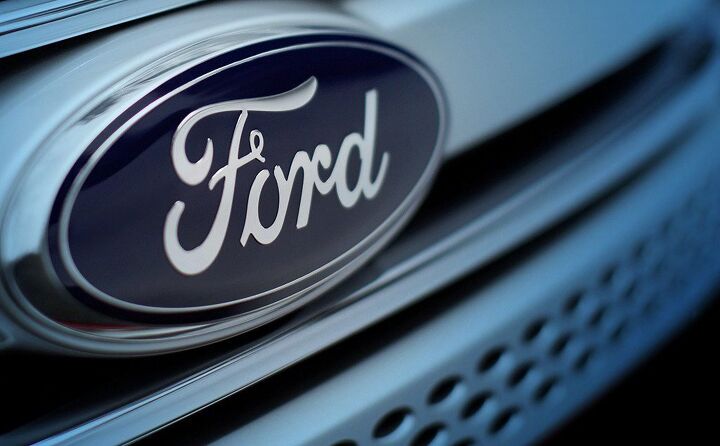
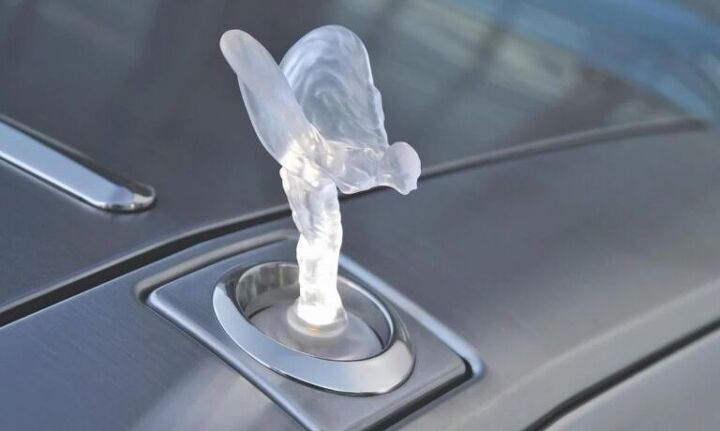

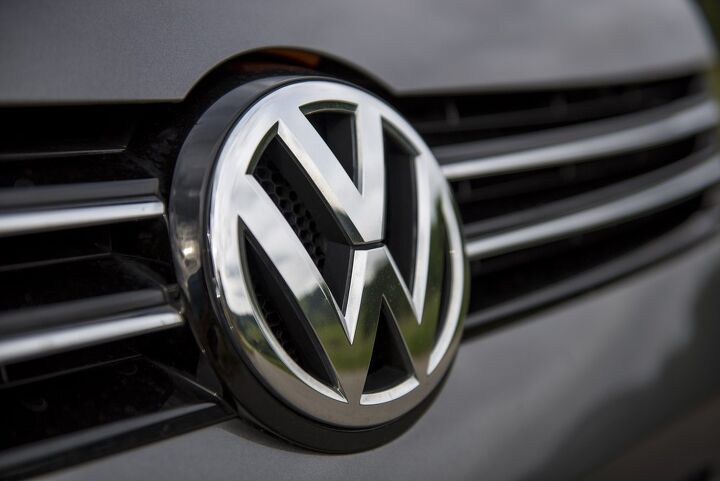




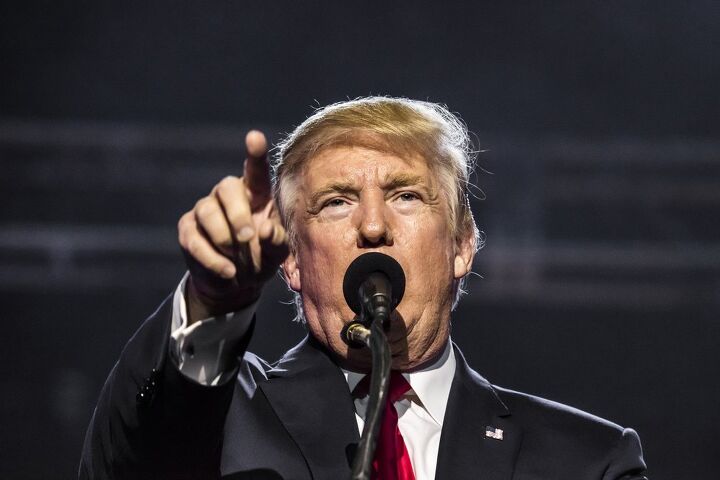
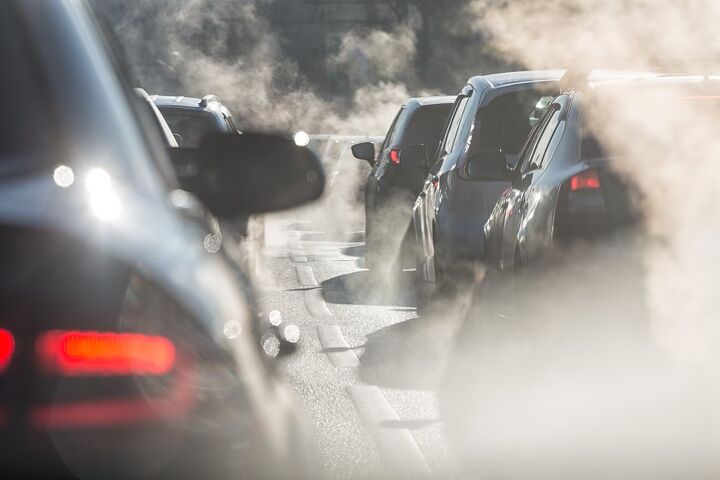


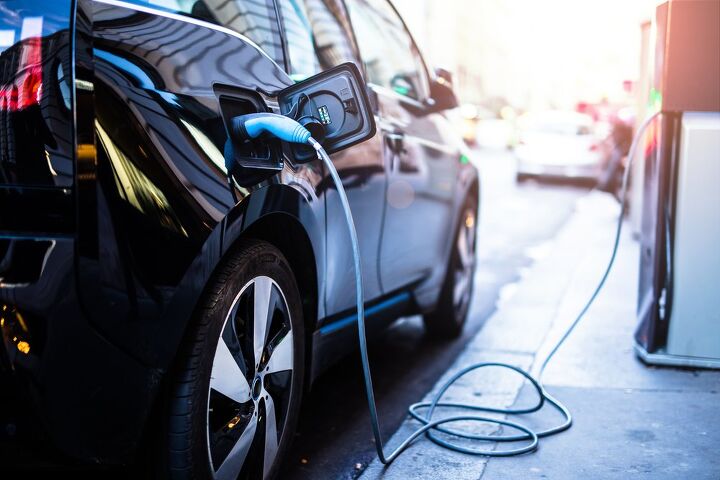
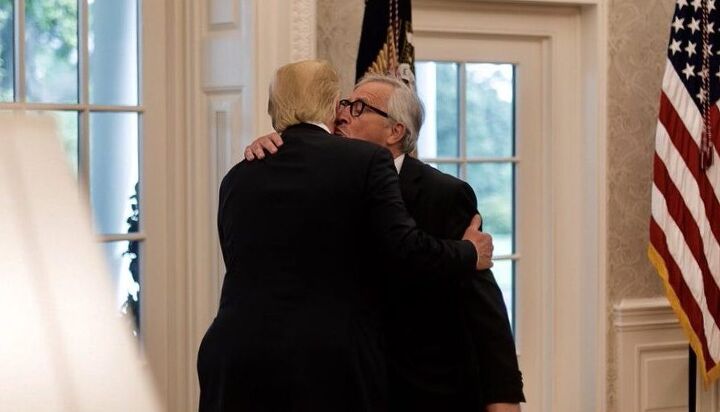













Recent Comments